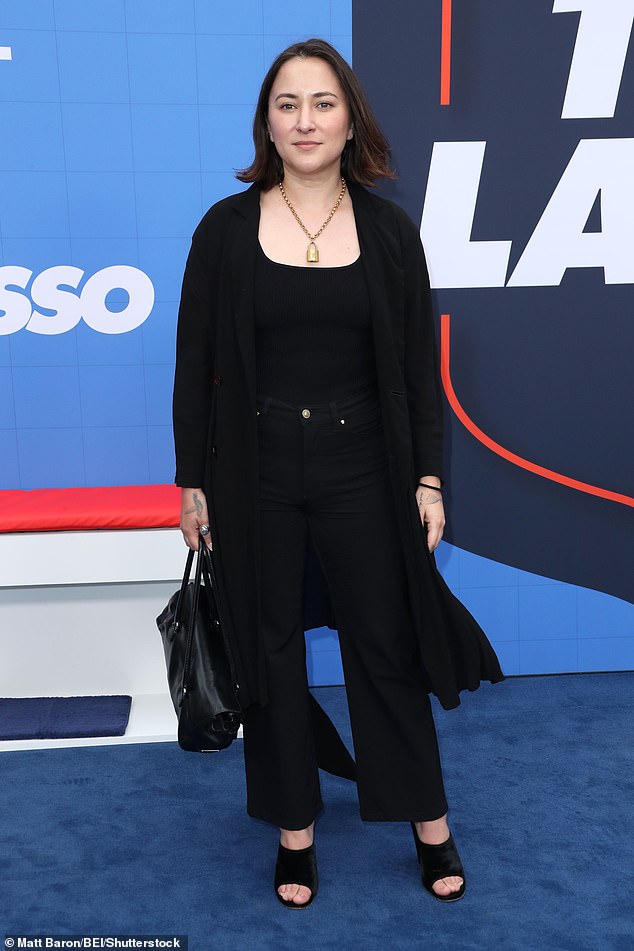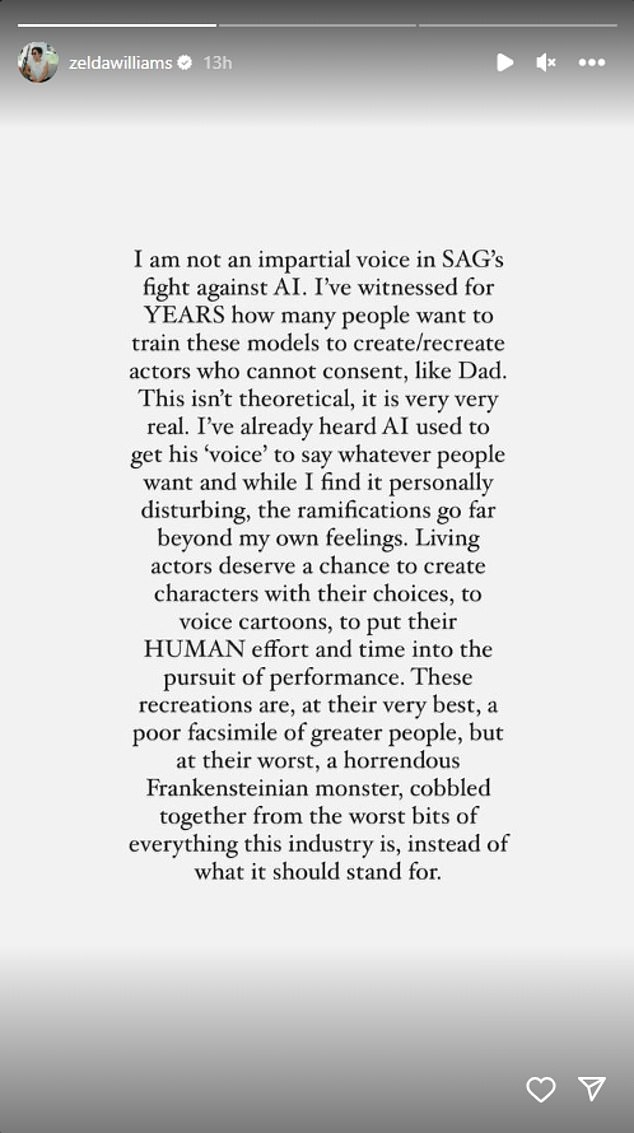Robin Williams’ daughter Zelda, 34, on using AI to mimic actor’s voice: ‘I personally find it disturbing’
Robin Williams’ daughter Zelda, 34, on using AI to mimic actor’s voice: ‘I personally find it disturbing’
Robin Williams’ daughter has called the use of AI to recreate her late father’s voice “personally disturbing” as she called for stricter controls on its use.
Zelda Williams was addressing the ongoing dispute between the Screen Actors Guild (SAG) and the Alliance of Motion Picture and Television Producers (AMPTP), with artificial intelligence being one of the main topics of discussion.
The 34-year-old said her father would have been “fighting the good fight” with the acting union as he celebrated the Mrs. Doubtfire star’s birthday this year.
Zelda wrote in an Instagram Story: “I have witnessed for years how many people want to train these (AI) models to create/recreate actors who cannot give consent, like Dad.
“I’ve heard of AI making its ‘voice’ say whatever people want it to say, and while I personally find it disturbing, the implications go far beyond my own feelings.”
Speaking out: Zara Williams (pictured with her late father Robin in 2009) has spoken about her discomfort with artificial intelligence mimicking her father’s voice since he died

In the blood: Zelda followed her father into show business as an actress, writer and producer (photo in June)

‘Disturbing’: Zelda took to Instagram to express her concerns not only about her personal feelings, but also about the threat AI poses to the entertainment industry
One of the main reasons SAG and the Writers Guild of America (WGA) went on strike, with industrial action beginning in May, was because workers sought protection from AI – the use of which is currently unrestricted.
Zelda added, “This isn’t theoretical, it’s very, very real.
“Living actors deserve a chance to create characters with their choices, to voice cartoons, to put their HUMAN effort and time into the pursuit of performance.
“These recreations are at their best a poor facsimile of greater people, but at their worst a hideous Frankensteinian monster, composed of the worst parts of everything this industry is, rather than what it should stand for.”
The post followed Zelda – an actress, writer and producer – who shared a post on X from Justine Bateman, the AI advisor to the SAG conversations.
She warned: “Right now, there are no entertainment trade union restrictions on generative AI models that take 100 years of movies/series, cut them up, and then pull out wads of all that work.”
The union’s president, Fran Drescher, also warned of actors being “replaced by robots” when she announced the SAG strike in July.
Since then, coupled with the writers’ strike launched two months earlier, Hollywood has been thrown into chaos and countless productions have been halted.
It’s been nine years since beloved comedian and Oscar-winning actor Robin committed suicide at the age of 63 in his home in San Francisco Bay.
He suffered from the neurodegenerative disorder Lewy body dementia.
The Hollywood star had been diagnosed with Parkinson’s disease, something he had kept secret, but an autopsy performed after his death on August 11, 2014 revealed that he had been misdiagnosed and instead suffered from Lewy body dementia.
The official cause of death was ‘asphyxia by hanging’.
Toxicology reports showed Williams had antidepressants, caffeine and levodopa, a drug used to treat Parkinson’s disease, in his system.
